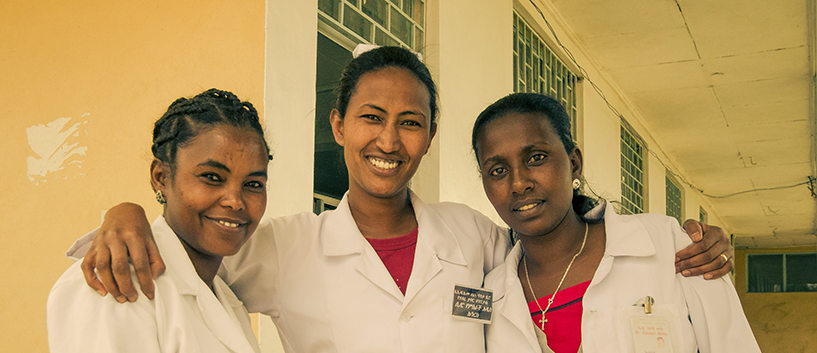Sustaining SIAPS’ Impact: What’s Next for Pharmaceutical Systems Strengthening?
Sustaining SIAPS’ Impact: What’s Next for Pharmaceutical Systems Strengthening?

The Systems for Improved Access to Pharmaceuticals and Services (SIAPS) program helped make sure that some of the world’s most vulnerable people have timely access to safe, affordable medicines and to quality services to improve their health. Funded by USAID, the program worked for six years in 46 countries to comprehensively strengthen pharmaceutical systems by addressing five interrelated functions, with a focus on medical products—governance, human resources, information, financing, and service delivery.
Each level of progress in pharmaceutical systems strengthening (PSS) sets the stage for further advances. Which areas need focused attention going forward so that progress continues?
- Countries need to consistently measure how well systems strengthening projects work, to set priorities and better guide country and donor investments. Some areas of research are still nascent; for example, how do we define what constitutes a resilient, sustainable system that can withstand shocks and challenges? That’s a need that came to light after SIAPS helped a number of countries recover after the Ebola outbreak, and which is critical as we all work to avoid future pandemics. To that end, SIAPS and its partners have proposed a definition of pharmaceutical systems and pharmaceutical systems strengthening and have developed a new framework, PSS Insight, for countries to measure progress. We need to know which activities contribute to a more resilient, responsive pharmaceutical system in the long run, versus improvements in specific functions that may not ultimately increase access to and appropriate use of medicines over the long term.
- If supportive policies are not in place, we cannot move forward with system strengthening interventions. Strategies that strengthen the capacity of institutions or organizations to implement policy and enforce regulations are critical to improving the efficiency and effectiveness of the pharmaceutical system and will aid in reducing the overall cost of health service delivery.
- We also need to continue to build human resource capacity, training more pharmacists and health workers and implementing reasonable task shifting strategies to address issues of supply and service delivery.
- We need to build a body of peer-reviewed literature. There’s an increasing amount of writing on health systems strengthening, but much less so specifically on the critical component of pharmaceutical systems strengthening.
- A systems approach needs to build on existing structures, including the private sector. The global development field can and should develop innovative public−private partnerships toward shared goals.
- We are in the information age, and we need to know how to use it. This means working with countries to institutionalize information management at all levels of the health care system and help them better use existing data for decision making. Data gleaned in new ways, such as via smart phones and Twitter, SMS, WhatsApp, etc can be usefully integrated into traditional data sets, too.
- There are a number of areas that need more attention in PSS going forward, including innovation; researchers and developers need capacity building along with other health sector workers. Trade issues are important, too, as they influence how pharmaceuticals enter the system and how they are traded.
- As global support grows for financial protection programs and the commitment to achieving the UN Sustainable Development Goals (SDGs), we need to keep reminding leaders of the critical role medicines play in quality health-service provision.
- The current funding environment tends to be siloed into health areas, with governments implementing activities accordingly. Yet effective pharmaceutical management is critical to success in all health system activities, and PSS lays the foundation for sustained, progressive improvements. We must therefore continue to advocate for funding dedicated specifically to PSS work.
SIAPS is a model of how strengthening the foundational components of pharmaceutical systems can contribute to their effectiveness and resilience. We need to continue pushing for progress to ensure that everyone—despite their circumstances—gets the medicines and care they need to make and keep them healthy.